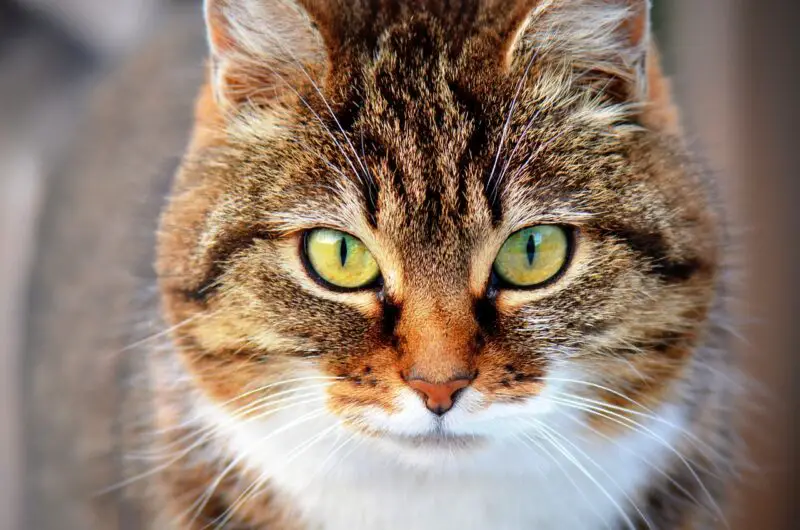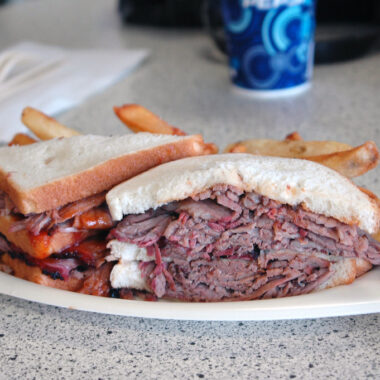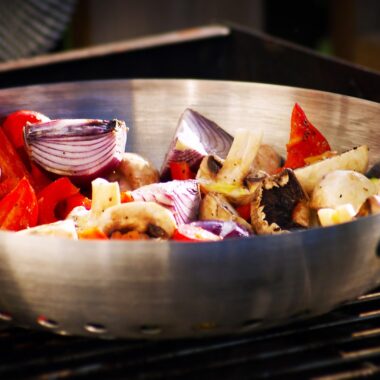Cats are obligate carnivores, meaning their diet must consist primarily of animal-based proteins to thrive. While commercial cat foods are widely available and convenient, some pet owners prefer homemade meals to ensure their feline friends get the freshest and healthiest ingredients. However, not all homemade cat food recipes are safe or nutritionally balanced. To create a diet that meets your cat’s needs, it is crucial to follow vet-approved recipes.
This article covers everything you need to know about homemade cat food, including essential nutrients, safety guidelines, and five vet-approved recipes that your cat will love.
Why Choose Homemade Cat Food?
Many cat owners switch to homemade meals for their pets for various reasons, such as:
- Control Over Ingredients: Some commercial cat foods contain fillers, artificial preservatives, and low-quality meat by-products. By making food at home, you can ensure your cat gets only the best ingredients.
- Tailored to Special Diets: Cats with allergies, kidney disease, or other medical conditions often require specialized diets. Homemade food allows you to create meals that cater to your cat’s unique needs.
- Fresh and Natural Ingredients: Unlike store-bought foods that may sit on shelves for months, homemade cat food provides fresh, wholesome nutrition.
- Improved Digestive Health: Some cats have sensitive stomachs and react poorly to commercial food. Homemade meals with high-quality ingredients can improve digestion and overall health.
Essential Nutrients for a Balanced Cat Diet
Before diving into recipes, it’s important to understand what nutrients your cat needs to stay healthy:
1. Protein (Meat, Poultry, Fish)
- The primary component of a cat’s diet.
- Provides essential amino acids, such as taurine, which cats cannot produce on their own.
- Common protein sources: Chicken, turkey, beef, rabbit, salmon, and tuna.
2. Healthy Fats (Omega-3 & Omega-6)
- Essential for maintaining a healthy coat and skin.
- Found in fish oil, chicken fat, and flaxseed oil.
3. Vitamins & Minerals
- Calcium and phosphorus are crucial for bone health.
- Vitamin A is essential for vision and immune function.
- Found in organ meats (liver, kidney) and bone meal.
4. Water
- Cats have low thirst drives and get most of their hydration from food.
- Wet homemade meals help prevent dehydration and kidney issues.
5. Fiber (Small Amounts)
- Helps with digestion and hairball prevention.
- Found in pumpkin, sweet potatoes, or finely chopped leafy greens.
Vet-Approved Homemade Cat Food Recipes
Below are five well-balanced recipes that provide all the essential nutrients your cat needs.
1. Chicken & Liver Cat Food
This protein-packed recipe includes chicken and liver, providing essential amino acids and vitamins.
Ingredients:
- 1 pound boneless, skinless chicken thighs
- 1 ounce chicken liver
- 1 boiled egg
- 1/4 teaspoon fish oil
- 500 mg taurine supplement (optional but recommended)
- 1/4 teaspoon bone meal powder
- 1/4 cup water
Instructions:
- Boil the chicken thighs and liver until fully cooked.
- Hard-boil the egg separately.
- Let all ingredients cool, then blend them together with water until smooth.
- Add fish oil, taurine, and bone meal powder, then mix well.
- Serve fresh or refrigerate for up to 3 days.
Why It’s Vet-Approved: This meal provides high protein, healthy fats, and taurine, essential for heart and eye health.
2. Salmon & Pumpkin Delight
Perfect for cats who love fish, this meal is rich in omega-3 fatty acids and fiber.
Ingredients:
- 1/2 cup cooked salmon (boneless, skinless)
- 1/4 cup pureed pumpkin (unsweetened)
- 1/2 teaspoon flaxseed oil
- 500 mg taurine supplement
- 1/4 teaspoon calcium supplement
- 1/4 cup water
Instructions:
- Cook the salmon thoroughly and let it cool.
- Blend with pumpkin, flaxseed oil, taurine, calcium, and water.
- Serve immediately or store in the fridge.
Why It’s Vet-Approved: This recipe supports skin health, digestion, and heart function.
3. Turkey & Rice Cat Food
A simple, easy-to-digest recipe great for cats with sensitive stomachs.
Ingredients:
- 1 pound ground turkey
- 1/4 cup cooked white rice
- 1/4 teaspoon fish oil
- 1/4 teaspoon bone meal powder
- 1/4 cup water
Instructions:
- Cook the turkey thoroughly and drain any excess fat.
- Mix in the cooked rice, fish oil, and bone meal powder.
- Let the mixture cool before serving.
Why It’s Vet-Approved: This meal provides protein and carbohydrates, making it gentle on the stomach.
4. Beef & Egg Feast
A great alternative for cats who prefer beef over poultry.
Ingredients:
- 1/2 pound lean ground beef
- 1 boiled egg
- 1/4 teaspoon fish oil
- 500 mg taurine supplement
- 1/4 cup water
Instructions:
- Cook the beef thoroughly, removing excess fat.
- Mash the boiled egg and mix with the beef.
- Add fish oil, taurine, and water, then blend until smooth.
Why It’s Vet-Approved: This high-protein meal supports muscle health and energy levels.
5. Rabbit & Carrot Gourmet
A lean, natural protein option, similar to a wild feline diet.
Ingredients:
- 1/2 pound rabbit meat (boneless)
- 1/4 cup cooked and mashed carrots
- 1/4 teaspoon bone meal powder
- 1/4 teaspoon flaxseed oil
- 1/4 cup water
Instructions:
- Cook the rabbit meat thoroughly and chop it into small pieces.
- Mix with mashed carrots, bone meal, and flaxseed oil.
- Blend with water for a softer texture.
Why It’s Vet-Approved: Rabbit is a lean protein source, and carrots provide vitamins for eye health.
Safety Tips for Homemade Cat Food
- Consult a Veterinarian: Before making dietary changes, consult your vet to ensure homemade food meets your cat’s specific health needs.
- Avoid Toxic Ingredients: Onions, garlic, chocolate, grapes, raisins, and dairy are harmful to cats.
- Use Supplements: Essential nutrients like taurine, calcium, and omega-3s must be included to prevent deficiencies.
- Balance the Diet: Cats need a proper ratio of protein, fat, vitamins, and minerals. Do not rely solely on meat without supplements.
- Maintain Hygiene: Store homemade food in airtight containers and refrigerate it to prevent bacterial contamination.
Final Thoughts
Homemade cat food can be a healthy and rewarding choice if done correctly. By following vet-approved recipes and ensuring proper nutrition, you can provide your cat with fresh, wholesome meals tailored to their needs. Always consult your veterinarian before transitioning to homemade food and consider supplementing meals with vet-recommended vitamins and minerals.
Frequently Asked Questions About Homemade Cat Food
Switching to homemade cat food can be a rewarding experience, but many cat owners have questions about how to do it correctly. Here are some common concerns and expert answers.
1. How Do I Transition My Cat to Homemade Food?
Cats can be picky eaters, and abrupt diet changes may cause digestive issues. Follow these steps to transition safely:
- Week 1: Mix 75% of their current food with 25% homemade food.
- Week 2: Increase to 50% commercial food and 50% homemade food.
- Week 3: Transition to 75% homemade food and 25% commercial food.
- Week 4: Fully switch to homemade meals.
If your cat refuses the homemade food, try warming it slightly to enhance the aroma or mixing it with a small amount of their favorite commercial wet food.
2. Can I Feed My Cat a Raw Diet?
A raw diet mimics what cats eat in the wild and can be beneficial if done correctly. However, raw food poses risks such as bacterial contamination (e.g., Salmonella, E. coli). If you choose a raw diet:
- Use human-grade meat.
- Freeze meat for at least 24 hours to kill parasites.
- Include essential supplements like taurine, calcium, and omega-3s.
- Avoid ground meat from stores, as it may be contaminated.
Consult a veterinarian before switching to a raw diet to ensure proper nutrition.
3. Do Cats Need Carbohydrates?
Unlike humans and dogs, cats do not need carbohydrates in their diet. However, small amounts of digestible carbs (like cooked pumpkin, carrots, or rice) can aid digestion. Stick to less than 10% carbs in their meals.
4. What Are the Best Supplements for Homemade Cat Food?
Even with fresh ingredients, homemade cat food requires supplements to be nutritionally complete. Consider the following:
- Taurine: Essential for heart and eye health (found in organ meats and fish).
- Calcium & Phosphorus: Supports strong bones (bone meal powder or eggshell powder).
- Omega-3 & Omega-6 Fatty Acids: Maintains skin and coat health (fish oil or flaxseed oil).
- Vitamin B Complex: Supports metabolism and energy levels.
- Vitamin A: Essential for vision and immune function (found in liver but must be carefully balanced).
Your veterinarian can recommend appropriate supplement dosages based on your cat’s weight and health.
5. Can I Store Homemade Cat Food?
Yes, but proper storage is essential to prevent spoilage:
- Refrigeration: Store meals in airtight containers for up to 3 days.
- Freezing: Freeze meals in portion-sized containers for up to 3 months.
- Defrosting: Thaw frozen food in the refrigerator overnight. Never microwave, as it can destroy nutrients.
6. Are There Certain Meats I Should Avoid?
Yes, some meats are unsuitable for cats:
- Processed meats (ham, bacon, sausage) – Too much salt and preservatives.
- Raw pork – Risk of parasites.
- Raw fish (too often) – Can cause vitamin B1 deficiency.
- Deli meats – High in sodium and additives.
Stick to lean meats like chicken, turkey, rabbit, and beef with minimal processing.
7. What Are Signs That My Cat’s Homemade Diet Is Working?
A well-balanced homemade diet should result in:
- Shiny coat and reduced shedding.
- Improved energy levels and playful behavior.
- Better digestion (fewer hairballs, less smelly litter box).
- Stable weight and muscle tone.
If your cat experiences weight loss, lethargy, or digestive issues, consult your vet immediately and adjust the diet.
Advanced Homemade Cat Food Recipes for Special Needs
If your cat has specific health concerns, consider these specialized recipes:
For Cats with Kidney Disease: Low-Phosphorus Chicken Recipe
- Ingredients:
- 1/2 pound cooked chicken breast
- 1/4 cup cooked white rice
- 1 tablespoon pureed pumpkin
- 1/2 teaspoon fish oil
- 1/4 teaspoon calcium carbonate powder
- 1/4 cup water
- Instructions:
- Cook and shred the chicken.
- Mix with rice, pumpkin, fish oil, and calcium.
- Blend with water for a soft texture.
Why It’s Vet-Approved: Low in phosphorus to support kidney health.
For Cats with Allergies: Single-Protein Turkey Recipe
- Ingredients:
- 1 pound ground turkey
- 1/2 cup cooked quinoa (alternative to rice)
- 1/4 teaspoon fish oil
- 500 mg taurine supplement
- 1/4 cup water
- Instructions:
- Cook turkey and quinoa separately.
- Blend together with supplements.
- Serve fresh.
Why It’s Vet-Approved: Turkey is a lean protein that reduces allergy triggers.
For Senior Cats: Soft Chicken & Egg Mash
- Ingredients:
- 1/2 pound boiled chicken breast
- 1 boiled egg
- 1/4 cup pureed sweet potato
- 1/4 teaspoon fish oil
- 1/4 teaspoon calcium powder
- 1/4 cup water
- Instructions:
- Cook and mash all ingredients.
- Blend with water for a soft consistency.
- Serve warm.
Why It’s Vet-Approved: Soft texture makes it easy for older cats to eat.
Final Thoughts: Is Homemade Cat Food Right for Your Pet?
Homemade cat food can be a wonderful option when done correctly. It provides fresh, high-quality ingredients tailored to your cat’s needs. However, it requires careful planning, supplementation, and regular vet checkups to ensure a balanced diet.
Key Takeaways:
✅ Vet-approved homemade recipes provide essential nutrients.
✅ Supplements like taurine, calcium, and omega-3s are crucial.
✅ Avoid toxic ingredients like onions, garlic, and processed meats.
✅ Proper storage prevents bacterial contamination.
✅ Gradual transition helps cats adjust to homemade food.
Before making the switch, consult with your vet to create a customized meal plan for your cat’s unique dietary needs.


















